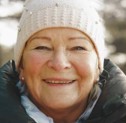
By staying vigilant and always taking a moment to stop, think and check, we can help to protect ourselves and each other from fraud.
For further advice, knowledge and tools visit Stop! Think Fraud - How to stay safe from scams
Scams can be devastating and affect anyone.
Fraudsters can impersonate trusted organisations, such as banks or government bodies, and use pressure tactics to manipulate us into revealing personal or financial information.
|
Common tactics include:
|
Unfortunately, there are many more....
Scams can often be advertised via mailed leaflets, email, website advert, telephone call and in person doorstep cold callers. They have convincing techniques and can even suggest you pay some money for an ‘admin fee’, before you receive goods, services or benefits that you may never receive.
Protect yourself and recognise telephone scams:
Potential scammers contacting you via telephone can portray a sense of urgency, calling you unexpectedly requesting your bank account information or pressure you to take immediate action, or make you feel uncomfortable about your financial situation.
Fraudsters may try to remotely access your mobile telephone and other devices by suggesting you need to do an update on your devices or say they can provide technical help. Once they have access, they will try to view your banking and personal data.
|
What to do if you receive a suspicious call:
|
|
Reporting these incidents help authorities track scam trends and act against fraudsters.
|





